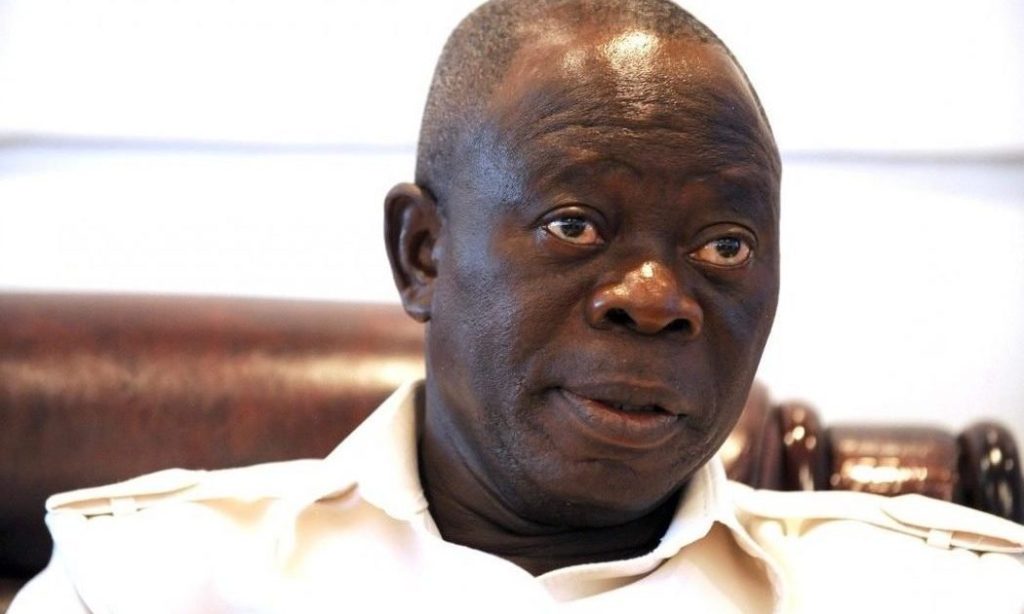A clash between Senator Adams Oshiomhole and Air Peace at the Lagos airport has ignited a controversy concerning passenger rights, airline practices, and appropriate conduct within the aviation sector. Oshiomhole alleges that Air Peace engaged in racketeering, demanding exorbitant fees from passengers to reschedule missed flights, while the airline maintains that the senator arrived late and that standard procedures were followed. This incident underscores the often-fraught relationship between airlines and passengers, particularly in Nigeria’s aviation industry, where delays, cancellations, and customer service issues are common occurrences. The senator’s public confrontation with airline staff and subsequent accusations have drawn both support and criticism, highlighting the need for clear protocols and effective communication within the aviation ecosystem.
The Airlines Operators of Nigeria (AON), the umbrella body for indigenous carriers, has condemned Oshiomhole’s actions at the airport, characterizing them as unruly and disruptive. The AON argues that while passengers have rights, these rights must be exercised within the established framework of aviation regulations and industry standards. They contend that resorting to self-help, as Oshiomhole allegedly did, is unacceptable and undermines the smooth operation of air travel. This stance reflects the challenges faced by airlines in managing passenger expectations and ensuring adherence to procedures while striving to maintain efficient operations. The AON’s defense of Air Peace highlights the airline’s significant market share and calls for respectful interactions between passengers and airline personnel.
Aviation Minister Festus Keyamo has ordered a thorough investigation into the incident and urged all involved parties to exercise restraint and avoid making further public accusations before the investigation is complete. This directive demonstrates the government’s commitment to ensuring transparency and accountability within the aviation industry. By calling for a comprehensive inquiry, the minister aims to gather all relevant information and perspectives before reaching a conclusion. This approach is crucial for fostering trust and promoting fair practices within the sector. The minister’s appeal for calm underscores the need for a balanced and objective assessment of the situation.
The differing opinions offered by aviation experts further complicate the narrative. Group Captain John Ojikutu criticized Oshiomhole’s actions, asserting that they constituted an abuse of aviation authority and a breach of airport security protocols. He draws parallels to a previous incident involving a former minister and emphasizes the importance of adhering to security regulations. Ojikutu’s perspective highlights the critical role of security procedures in maintaining the safety and integrity of air travel. By framing the senator’s actions as a security breach, he raises concerns about the potential implications of such behavior for national security.
Conversely, Captain Muhammed Badamosi faulted Air Peace, suggesting that they should have allowed Oshiomhole to board the aircraft since he had completed online check-in and arrived before the closure of the check-in desk and boarding gate. He argues that this constitutes standard airport procedure and that the airline’s refusal to accommodate the senator demonstrates a lack of respect for an eminent person. Badamosi’s perspective champions passenger rights and stresses the importance of airlines honoring online check-in confirmations. His emphasis on standard operating procedures highlights the need for consistent and transparent practices within the aviation industry.
The incident has sparked a wider debate about passenger rights, airline responsibilities, and the need for improved communication and customer service within Nigeria’s aviation sector. Oshiomhole’s accusations of racketeering raise concerns about potential exploitation of passengers, while the AON’s defense of Air Peace emphasizes the challenges faced by airlines in navigating complex operational procedures and managing passenger expectations. The aviation minister’s call for a full-scale investigation underscores the government’s commitment to addressing these issues and ensuring fair practices. The conflicting opinions of aviation experts further highlight the complexities of this incident and the need for a thorough and impartial examination of all perspectives. Ultimately, this incident underscores the critical importance of clear communication, transparent processes, and respectful interactions between passengers and airline personnel to foster a positive and efficient aviation experience for all.














